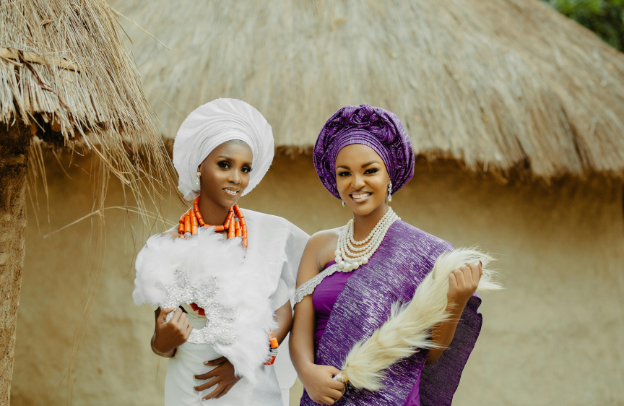The Role of African Festivals in Strengthening Diaspora Connections to Africa

How do African festivals strengthen diaspora connections? If that question sparks your curiosity, keep reading because the answer goes far beyond celebration. For many Africans in the diaspora, attending an African festival for the first time feels like stepping into a long-lost room of the soul—something deeply familiar, yet never fully experienced.
Learn How to Leverage Your Story through our Story To Asset Framework.
Whether it’s the regal Egungun Festival in Benin City, the iconic Eyo Festival in Lagos, the powerful Homowo Festival in Ghana, or FESPACO, the renowned Pan-African Film and Television Festival of Ouagadougou in Burkina Faso, these events are more than spectacles of music, dance, and tradition.
They are living, breathing archives of culture, memory, and ancestral pride. African festivals offer diasporans a chance to reconnect with their roots, witness the resilience of their heritage, and rediscover a sense of belonging that transcends borders and generations.
They offer a rare and powerful space for diasporans to reconnect with ancestral roots, revive cultural memory, and build authentic relationships with communities on the continent. In a world where identity can feel fragmented, African festivals offer wholeness, a joyful, communal reminder of where we come from and who we still are.
For generations, the transatlantic slave trade and subsequent colonial histories severed African-descended people from their cultural roots. Names, languages, spiritual practices, and traditions were stripped away or suppressed, especially in the Americas and the Caribbean.
See also Group Tourism for Social Good: Collaborative Projects and Initiatives within the African Diaspora
In this context, African festivals act as powerful repositories of cultural memory. They preserve the oral histories, rituals, music, and symbols that colonialism tried to erase.
For example, the Osun-Osogbo Festival in Nigeria, a UNESCO-recognized cultural heritage event held annually at the Osun Sacred Grove. Pilgrims from across the African world—spanning Trinidad, Brazil, the United States, and the UK, flock to the festival to honor the Yoruba goddess Osun.
For diasporans, the experience is both sacred and symbolic: it is a ritual homecoming and a reconnection to a spiritual lineage often lost through forced migration.
As cultural scholar Dr. Cheryl Sterling notes in her study African Roots, Diasporic Routes, “African festivals provide diasporans with experiential access to traditions that were carried across the Atlantic but transformed by time and resistance.” These encounters not only restore a sense of historical continuity but also anchor diasporans in the living, breathing realities of modern African culture.
Festivals as Bridges for Pan-African Collaboration
Beyond cultural reconnection, African festivals increasingly serve as a fertile ground for collaboration between diaspora communities and African hosts.
Events such as Chale Wote Street Art Festival in Accra, FESPACO (the Pan-African Film and Television Festival of Ouagadougou) in Burkina Faso, and Lake of Stars Festival in Malawi have evolved into platforms for transcontinental partnerships in art, entrepreneurship, and education.
The success of Ghana’s “Year of Return” and the continuation of its “Beyond the Return” campaign provide a compelling example. The festival-rich calendar helped to attract over one million diaspora visitors in 2019, resulting in cultural exchanges, startup ventures, and even real estate investments that are still ongoing today.
See also Exploring Africa Through Collaboration: The Benefits of Group Tours for Diasporans
Diasporans attending such festivals often connect with African designers, filmmakers, chefs, and musicians. These connections go beyond momentary admiration, they spark joint projects, mentorships, and business ventures. Shared creativity becomes a tool for collective transformation, and festivals offer a context where these partnerships can flourish.
African Philosophies that Underpin Festival Collaboration
At the heart of these meaningful interactions are enduring African principles that continue to shape how communities engage. Three key values, Sankofa, Ubuntu, and Ujamaa, offer frameworks for understanding why African festivals are so effective at strengthening diaspora ties.
- Sankofa, an Akan term meaning “go back and get it,” encourages diasporans to reconnect with what was lost or forgotten in order to move forward. Attending festivals that celebrate pre-colonial traditions, ancestral spirituality, and indigenous knowledge systems is a direct application of this principle. Whether it’s through mask dances in Mali or griot storytelling in Senegal, Sankofa empowers diasporans to reclaim fragmented histories and forge holistic identities.
- Ubuntu, from southern Africa, embodies the philosophy “I am because we are.” This communal spirit is palpable during festivals, where hospitality, inclusivity, and shared experience dominate. Diasporans are not treated as foreigners but as family returning home, welcomed into ceremonies, meals, and conversations with open arms. This spirit dissolves the sense of otherness that many African-descended people experience abroad.
- Ujamaa, popularized during Julius Nyerere’s presidency in Tanzania, promotes cooperative economics and collective prosperity. Festivals rooted in this value encourage diasporans not only to consume culture but to contribute to it. From purchasing directly from local artisans to funding cultural preservation projects, visitors actively participate in sustaining the very traditions they come to celebrate.
Revitalizing Local Economies and Culture Through Diaspora Engagement
African festivals also provide tangible economic benefits to host communities. When diaspora travelers attend these events, they boost local economies through spending on accommodation, food, transport, and artisan goods. But even more impactful is the long-term investment some diasporans make after emotionally and culturally connecting to a place.
In Ethiopia, for example, Timket (Epiphany) celebrations attract Ethiopian-Americans who often return with philanthropic intentions—supporting education initiatives, heritage site restoration, and healthcare projects. According to The Africa Report, such emotional ties have led to a surge in diaspora investments in Ethiopia’s cultural and travel sectors.
Moreover, festivals create opportunities for younger generations in Africa to preserve and modernize their heritage. Young fashion designers, spoken word artists, musicians, and digital storytellers increasingly use festival platforms to showcase work that resonates both locally and globally.
See also How Group Tourism Fosters Mutual Understanding Among African Diaspora Communities
Diasporans, many of whom bring expertise in media, tech, and finance, can act as enablers, helping to amplify these voices on the world stage.
Digital Pathways: Expanding Access to Cultural Reconnection
Technology is also making African festivals more accessible than ever to diasporans who may not be able to travel. Virtual attendance, live streaming, and immersive 360° video now allow users to participate in festivals from across the globe. Platforms like Afropunk, MTV Base Africa, and Africa Day Concerts have bridged time zones and geographies to create new kinds of cultural intimacy.
Diaspora-led organizations such as The Africa Center in New York and Afrikan Fusion in the UK frequently partner with African festivals to create hybrid events, offering pop-up experiences, artist residencies, and knowledge exchanges. These digitally augmented events ensure that cultural reconnection is not limited by borders or budgets.
The Road Ahead: Institutionalizing Festival Engagement
To sustain the growing interest of diaspora communities in African festivals, both African governments and cultural institutions must create structured pathways for participation. Visa waivers for African-descended people, diaspora travel boards, and festival ambassador programs are just a few of the strategies that can be used to deepen engagement.
For instance, Rwanda has initiated visa-on-arrival policies for all Africans, including those from the diaspora, as part of its broader goal to position itself as a pan-African hub. Other countries, such as Benin and Senegal, are following suit, recognizing that embracing the diaspora is not just symbolic—it’s strategic.
As emphasized in the African Union’s “Sixth Region” recognition of the diaspora, the future of the continent is inextricably linked to its global family. African festivals, then, are not mere entertainment; they are essential rituals of reunion and reinvention.
See also: Group Tourism for Social Good: Collaborative Projects and Initiatives within the African Diaspora
Conclusion: A Celebration of Shared Legacy
In a world where cultural dislocation has long defined the African diaspora experience, festivals offer a powerful counter-narrative. They are celebratory yet sacred, social yet spiritual, modern yet deeply historical. More importantly, they are spaces where fragmented identities are healed, and new connections are forged.
Through African festivals, diasporans don’t just watch; they participate. They don’t just remember, they co-create. In the rhythm of the drum, the warmth of welcome, and the collective joy of celebration, a profound truth becomes clear: Africa never left them, and through these cultural gatherings, they are finally finding their way home.
Group Tourism for Social Good: Collaborative Projects and Initiatives within the African Diaspora





